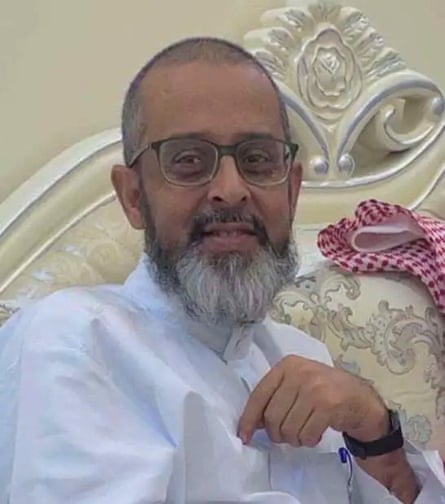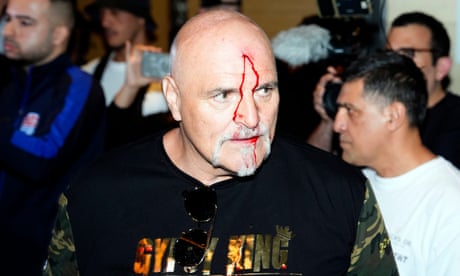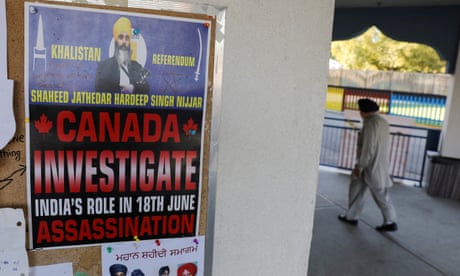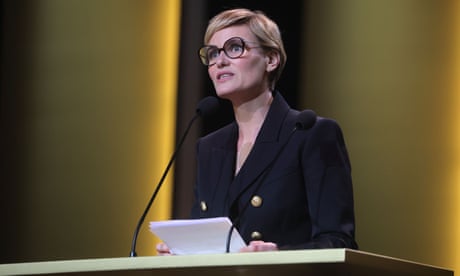Revealed: US university lecturer behind far-right Twitter account and publishing house
A Guardian investigation has identified former University of California, Irvine (UCI) lecturer Jonathan Keeperman as the man behind the prominent “new right” publishing house Passage Press and the influential Twitter persona Lomez.
The identification is based on company and property records, source interviews and open-source online materials.
The reporting has revealed that Keeperman’s current status as a key player and influential tastemaker in a burgeoning proto-fascist movement came after years of involvement in far-right internet forums.
Much of that journey coincided with his time at one of the country’s most well-regarded writing programs: Keeperman first came to UCI as a master of fine arts (MFA) student, and was also a lecturer in the English department from 2013 to 2022, according to public records.
The emergence of Passage Press and other such publishers has been a key part of the development of a swathe of the current American far right, which is seeking to capture US institutions – or develop far-right equivalents – as part of a political and cultural war against what it sees as the dominance of a liberal “regime” in America.
In a June 2023 podcast interview, Keeperman characterized Passage Press and its literary prize as part of this effort to “build out alternative infrastructure, alternative institutions”.

It is a fight wholeheartedly embraced by Donald Trump and his supporters in the Republican party, especially in their railing against “the deep state” and promises of retribution should Trump win the 2024 presidential election.
The Guardian repeatedly contacted Keeperman requesting comment on this reporting, at a personal Gmail address and a Passage Press address, and left a voicemail message at a telephone number that data brokers listed as belonging to Keeperman, but which carried a message identifying it as belonging to a member of his household.
Keeperman did not directly respond to these requests. However, hours after a request on 1 May, “Lomez” on X castigated “lying, libelous journalist-activists” and appeared to make veiled legal threats. Another detailed request was sent on 5 May, and just an hour later, Passage Press’s star writer posted about a “major legacy media outlet threatening to dox a pseudonymous Twitter account”.
Scary ideas – and wanting to be recognized
Passage Press books include a Tucker Carlson-blurbed anthology of writings by “human biodiversity” influencer Steve Sailer; a similar retrospective from “neo-reactionary” guru Curtis Yarvin; and a print version of the biannual Man’s World.
Like many other far-right publishers, Passage’s list is bolstered by reprints of out-of-print or public-domain books by historical fascist and reactionary writers. These include books by radical German nationalist and militarist Ernst Jünger; Peter Kemp, who fought as a volunteer in Franco’s army during the Spanish civil war; and two counter-revolutionary Russian aristocrats, White Russian general Pyotr Wrangel and Prince Serge Obolensky.
A James McAdams, professor of international affairs at the University of Notre Dame, who has done extensive research on far-right thinkers and publishing houses, said such publishers operate “on the level of ideas – scary ideas – but it’s also about wanting to be recognized, and finally it’s about money”.
“This is a source of money,” McAdams continued. “The general public does not know about Ernst Jünger, but you can sell his books to the far right, and you can make money.”
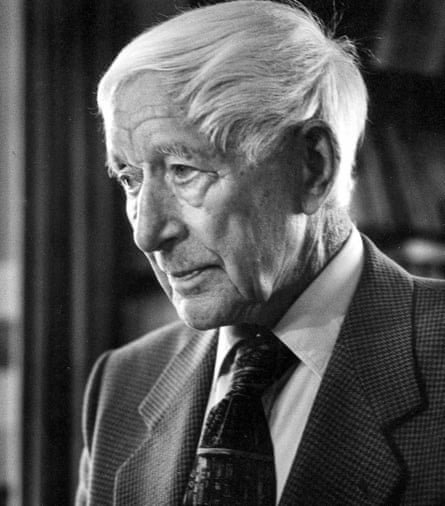
Passage Press differs from many others in its niche in offering new work by the contemporary far-right’s intellectual celebrities, and in curating in-person events and a far-right literary award.
The publisher also produces high-end limited editions of selected titles. The “patrician edition” of Noticing, a book by Sailer, for example, is “bound in genuine leather, gold-foil stamping” and “Smyth-sewn book block”, according to the website.
Though lavishly produced, the “patrician” offerings appear to have generated significant income for Passage. At the time of reporting, Passage had sold out its limited run of 500 patrician editions of Noticing at $395 apiece, according to the website. This equates to some $195,000 in revenue. An earlier patrician edition of winning entries in the 2021 Passage prize sold 250 editions at $400 apiece, according to the website, representing another $100,000 in revenue.
The publication of Noticing – also available as a $29.95 paperback – was spun out into a series of in-person events in Austin, Los Angeles, Miami and New York City, held in March, April and May.
Passage offered a $75 bundle comprising a copy of the book and a ticket to an in-person event, though the website warned prospective attendees: “Location details will be delivered via email. No photos or recordings of any kind will be permitted at these events.”
Buyers of the patrician edition could attend “salon events” in these cities for a $300 upcharge. These were advertised as “small, intimate spaces that include dinner, an open bar, and a unique conversational setting with Steve and special guests”. The website did not indicate how many salon tickets were available, but at the time of writing they had sold out.
Passage Press has also commenced publishing a print version of the hitherto online-only magazine Man’s World, which is helmed by the pseudonymous editor “Raw Egg Nationalist” (“REN”), a British writer who was described in left-right syncretist magazine Compact as “one of the brighter stars in a sprawling constellation of rightwing social-media influencers who exalt nature, tradition, and physical fitness”.
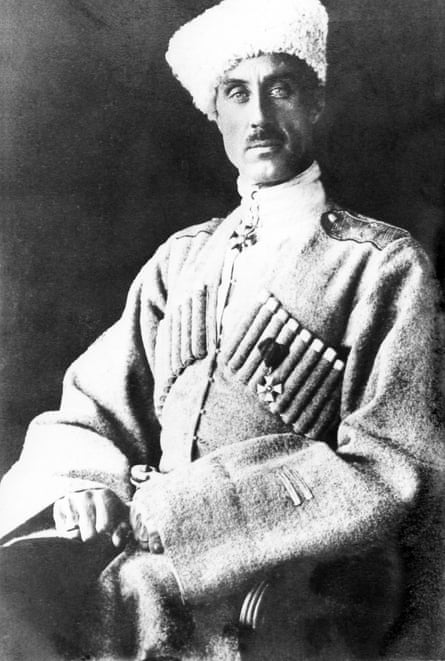
REN, who has previously published cookbooks with white nationalist publisher Antelope Hill, batters his social media followers and Substack subscribers with dubious dietary and health information along with “anti-globalist” conspiracy theories. He came to wider prominence when he was featured in a 2022 documentary, The End of Men, produced by Tucker Carlson when Carlson still worked at Fox News.
“REN and Man’s World represents a paradigm case of how masculinity is being articulated at the heart of rightwing politics,” said Scott Burnett, an assistant professor of African studies and women’s, gender and sexuality studies at Pennsylvania State University.
“There’s stuff in Man’s World that is fascist, sometimes bordering on neo-Nazi,” he added, but it is draped in “an ironic gauze”.
Currently, Passage is soliciting entries for the third annual Passage prize, an art and literature prize for rightwingers who feel “straight-jacketed by the increasingly hysterical and vicious gatekeepers of their institutional homes”.
‘L0m3z’ on Twitter
In previous coverage, Lomez and REN have been identified as prominent members of the so-called “new right”, a term that has gained currency as a description of a cluster of illiberal, anti-democratic, “counter-revolutionary” tendencies in rightwing politics in the US.
Lomez acquired early influence in the new right movement by means of the L0m3z account on X, which has 55,000 followers at the time of reporting.
Internet archives have preserved a range of the posts with which he attracted a large audience, but also suggest he has deleted many of these.
One of the account’s themes is an antipathy for racial justice protests, especially after the George Floyd protests in 2020.
Lomez also supported those who responded to protests with violence, posting at the end of Kyle Rittenhouse’s trial: “Rittenhouse is a hero. He is a symbol, in word and deed, and in his baseless persecution, of what is good and decent and courageous and the forces arrayed against those qualities. May a million Kyle Rittenhouses bloom.”
Anti-LGBTQ+ sentiments also have constituted a consistent theme on the account. In January 2020, he wrote he was “coming around to the idea that the most powerful and effective political argument against the left in 2020 is probably simple as: shut up fag.”

Journalists have also been a favorite target of the account. A post reads: “the press are in fact the enemy. They are mewling midwit scum. Sniveling liars and desperate status junkies. My abiding contempt for them is only ever confirmed.”
A list of “policy proposals” begins with “lamppost the journos” – an apparent call for summary lynchings of members of the media.
As the Twitter account grew, Lomez increasingly engaged in chummy interactions with prominent far-right figures including self-described eugenicist Bo Winegard, but above all with culture warrior Christopher Rufo, with whom Lomez has had dozens of interactions.
The Guardian has reported in several stories in recent months on Rufo’s links with far-right media outlets, would-be “warlords” and proponents of scientific racism.
Rufo has characterized these stories on social media as illegitimate “guilt by association”.
The former MFA student in print
Keeperman was able to parlay the growing clout of his Twitter account into commissions at the many rightwing media outlets that allowed him to publish under a social media pseudonym.
Early bylines included a March 2020 piece in the Claremont Institute’s publication, the American Mind, in which he argued that “retards” better anticipated the impact of the early stages of the Covid pandemic than “midwit experts”, and a March 2021 piece at online far-right magazine IM-1776, in which he encouraged readers to believe that they were involved in a “fifth-generation war” against their perceived political enemies.
More recently, in a February piece at the Federalist, Lomez argued that the prosecution of “alt-right” personality Douglass Mackey, once known online as “Ricky Vaughn”, represents the state using an “expansive reading of civil rights law to punish their political enemies and flex their tyrannical authority”.
Mackey was sentenced to seven months in prison last October for election interference over his dispatch of mass text messages in November 2016 urging Black recipients to “vote by text” instead of casting a legitimate vote, with the messages purporting to be sponsored by the Clinton campaign. Mackey is currently appealing that verdict.
Keeperman’s most influential publication as Lomez, however, may have been an essay published in “theocon” outlet First Things, which popularized a new right anti-feminist concept: “the longhouse”. The essay defines the longhouse as a metaphor for the supposed “overcorrection of the last two generations toward social norms centering feminine needs and feminine methods for controlling, directing, and modeling behavior”.
This metaphor has been widely adopted by writers on the anti-feminist right, including Rufo, religious conservative Rod Dreher and writers for outlets such as the American Mind.

In the piece, “Lomez” proffered the Passage prize competition, then accepting submissions in its second iteration, as a way “to remedy this problem, to provide an arena for the competing visions that exit from the longhouse will require”.
But it was in launching the first Passage prize in late 2021 that Keeperman inadvertently offered crucial clues that tied him to the Lomez persona.
How the Guardian identified Keeperman
Keeperman appears to have made considerable efforts to limit his online footprint, thereby reducing the possibility that he would be linked to the Lomez persona. Keeperman has no discoverable profiles in his own name on social media, blogging or professional-networking sites.
The identification was made possible by unavoidable traces left in public records such as property deeds and public salary records, but also by the sequence of events that led up to the announcement of the first Passage prize.
According to Whois records, the domain passageprize.com was registered on 6 October 2021 via a domain name registrar who anonymized the domain’s true owner.
One day later, Passage Press LLC was registered in New Mexico. Filings name Jonathan Keeperman as the sole member of the LLC and online legal services company LegalZoom.com Inc as the organizer.
At that time, only one other company called Passage Press LLC existed in any US jurisdiction – that one was owned by a female freelance technical writer and editor in Colorado and had been established in 2014, and its website is now dormant.
The Keeperman-founded New Mexico company was dissolved in December 2023. Passage Press LLC was re-registered in Delaware on 9 May 2022. The Delaware registration only identifies a corporate services company as agent and director.
Although the New Mexico LLC registration was registered at a mailbox provider in Garden City, Idaho, another company that lists Keeperman as a member – Paradise Valley Partners – is registered at a Livingston, Montana, address. The property at that address is co-owned by Keeperman, according to Park county property records.
Less than a week after the 2021 domain and New Mexico company registrations, “Lomez” announced the Passage prize on his Twitter account. Snapshots preserved by internet-archiving services indicate that by at latest 14 October 2021, a webpage at passageprize.com was soliciting entries for the Passage prize, “a literature and arts contest” with “a $10,000 prize pool”.
The proximity in time of the domain registration, Lomez’s competition announcement and the company registration identifying Jonathan Keeperman as Passage Press’s sole member offer one line of evidence for the identification of Keeperman as Lomez.
Posts by “Lomez” on what is now X reveal crucial details that line up with Keeperman’s biography.
In January, he posted that he was the third child in his family, which matches details offered in public accounts, including a parent’s published biography.
That obituary says that Keeperman’s parent died on 1 October 2022. On 3 October 2022, a post by Lomez indicates that his father had died in the immediate past.
Also, a range of posts indicate that the person behind Lomez worked at a university, attended graduate school and spent extended time in an academic milieu.
A 20 September 2022 tweet indicates that “Lomez” has decided to resign from his job, blaming a “bio-statist ukase”.
The date coincides with the beginning of the University of California, Irvine’s 2022-2023 academic year. A personnel record obtained via records request from UCI indicates that Keeperman departed UCI at the end of that academic year, finishing in his then-100% remote position on 30 June 2023. The record gives the reason as “resign – moved out of area”.
The tweet referencing unwelcome decrees came weeks after UCI’s August 2022 policy changes that generally required staff to spend several days a week on campus, and tightened eligibility for wholly remote work and out-of-state remote work for UCI employees. In July 2022, UCI’s chancellor announced an extension of the university’s pandemic mask mandate through that school year.
As Lomez, the Montana-based Keeperman posted conspiracy-tinged tweets about masks and vaccines before and since the tweet indicating his departure from UCI.
This alignment of Twitter posts and biographical events in Keeperman’s life are another line of evidence for him being behind the “Lomez” persona.
UCI connections
Until his departure from UCI, Keeperman had been a composition teacher in the English department. California salary records published by Nevada Policy show Keeperman earning a UCI salary every year from 2013 to 2022, except for the pandemic year of 2020; the UCI personnel record indicates that he originally began working for the university in January 2009; his earliest rating on RateMyProfessors.com is from July 2010.
In 2015, a local media report from Santa Monica announcing a book reading by authors recently published in the Santa Monica Review, described him as one of two “recent grads of the UC Irvine creative writing MFA program”.
In 2016, Keeperman was mentioned by another southern California media outlet when it published a press release from the UCI College Republicans. The release was a response to the club’s suspension following their invitation of conservative provocateur Milo Yiannopoulos on to the campus.

The title of the planned Yiannopolous talk was “Social justice is cancer”, according to contemporaneous media reports. At that time, Yiannopoulos’s campus visits were attracting protests and counter-protests in the UK and the US.
The press release featured a supportive quote from Keeperman, in which he said: “Freedom of speech is an extraordinary right that requires extraordinary vigilance to uphold. We must do everything possible at our universities to allow for the exchange of all political ideas, even those that may shock and offend, and allow for rebuttal to those ideas through civil debate.”
No other UCI faculty were quoted in the release.
Keeperman was also involved in labor activism as a member of UCI’s American Federation of Teachers chapter, and spoke at several conferences about labor conditions for lecturers, who are not tenured.
A former colleague of Keeperman’s, who worked closely with him in such activism within the UC system, positively identified Keeperman’s voice from recordings of his many guest appearances on far-right podcasts.
An early persona: Mr Lomez
One of those podcast appearances as Lomez was an episode of the Carousel published on 10 May 2023. Host Isaac Simpson asked “Lomez” about his history online.
“I’m on my third [Twitter] account,” “Lomez” replied. “They’ve all been some version of Lomez. My, I mean, I’ve been posting in this Twitter space since about 2015-ish.”
He added: “I knew a lot of people from Steve Sailer’s comment section on his old iSteve blog, and a lot of the people who I ended up following on Twitter initially were people I recognized or were familiar to me from, from that comment section, and it was the kind of people that Sailer would link to.”
On the question of his online history, “Lomez” concluded: “Actually, I ran a blog. I’m not going to talk about it too much because there’s potentially doxable material there, but I actually ran a blog at one point that … well, I’ve already said too much, so anyway, I’ll just stop there.”
An individual with the screen name “Mr Lomez” was a frequent commenter on Steve Sailer’s iSteve blog between 2012 and 2014. The archives of Sailer’s early blogging have since been transferred – along with comments – to the Unz Review, an aggregator of far-right content run by antisemitic software millionaire Ron Unz.
Mr Lomez posted criticisms of affirmative action in college admissions, commentary on the trial of George Zimmerman over his fatal shooting of Trayvon Martin, and complaints about anti-immigrant parties being characterized as “far-right” in media coverage.
Mr Lomez also frequently flexed literary expertise, a deep knowledge of sports and a particularly intimate familiarity with college athletics.
In a post on 23 February 2013, Sailer was critical of the William Pereira-designed architecture at the UCI campus, with his post including a photograph of the Social Science Tower.
“Mr Lomez” commented: “My office is in that building. It’s as bad on the inside as it is on the out – claustrophobic and soulless. I feel like I’m in a rat maze.”
Keeperman maintained a separate blog under “Mr Lomez” in 2006 and 2007.

The self-portrait – which includes a photo – that begins in the first post on that blog, made on 29 November 2006, appears to be of the same person depicted in the few other publicly available images of Keeperman, including one in a now-paywalled (but archived) article at the California Federation of Teachers website, and others in a third-party archive of his wedding photos, which link to the archive using Keeperman’s wife’s name on Facebook.
In comments on the blog, interlocutors address him as “Joey”. University of California, San Diego men’s basketball media guides indicate that a “Joey Keeperman” played for the team in 2001-02, when Keeperman was 19.
Local news and high-school basketball reporting from 2000 indicates that as a high-school senior, Keeperman was an accomplished football wide receiver and star basketball player for Campolindo high school in Moraga, in northern California. “Joey” and “Jonathan” are used interchangeably in the coverage.
Moraga is the same northern California town where Keeperman was raised, according to the 2022 parental obituary, and is also where Keeperman celebrated his bar mitzvah in 1996, according to a contemporaneous issue of the Jewish News of Northern California.
Posts on the blog detail his travels in south-east Asia, including destinations “Lomez” has mentioned on Twitter. Another post mentions a sibling’s health problems, and that sibling’s first name matches that of one of Keeperman’s siblings.
In the last posts on the blog, there are hints of the racial thinking that “Mr Lomez” would later express on Sailer’s blog.
On 2 May 2007, in response to a New York Times report on a study that found racial bias in NBA refereeing, Keeperman made an argument characteristic of “human biodiversity” proponents: “I’m gonna go out on a limb and suggest that black players get called for more fouls because black players do in fact commit more fouls.”
Keeperman added: “Before calling me a racist, at least hear me out.”






